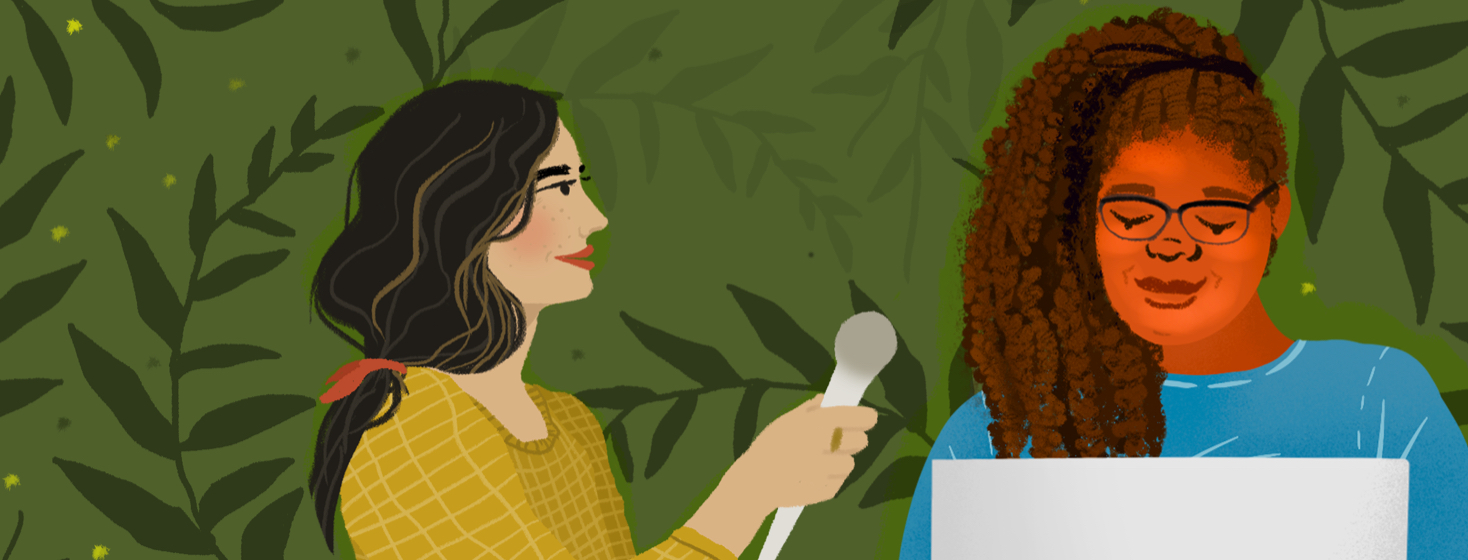Meet Moyna & Learn About Her MS Advocacy
How did you react when you were first diagnosed with MS? Shock, grief, anger, isolation, and even relief are common emotions. When Moyna was diagnosed less than one year ago, she channeled these feelings into advocacy by jumping straight into blogging and social media to share her story. She noticed a gap in the MS online community and decided to do her part to fill it! MultipleSclerosis.net Editorial team member Alina Ahsan was lucky enough to talk with Moyna about her experiences and her goals, and you can read the resulting interview below!
About Moyna
Alina: Tell us about yourself and when you were diagnosed with MS.
Moyna: I'm 29 years old and based in New York City. I reside with my partner, Nicholas, and son, Micah. I was diagnosed with relapsing-remitting MS on 12/31/19. Some symptoms I experience are numbness, stiffness, lack of mobility, vertigo, depression, fatigue, overactive bladder, aches/pain, blurry vision, and pain in my right eye. The symptoms I experienced during my initial flare that led to my diagnosis were partial loss of vision in my right eye, complete numbness from underneath my breasts to my toes. Those symptoms took 3 to 4 months to subside.
MS advocacy
Alina: Wow, it sounds like you have been through so much in your first year with MS! How did you jump into advocacy and start the Life with Moyna blog and Instagram account so soon?
Moyna: I jumped into advocacy and creating my brand because I noticed the MS community was lacking in diversity. I did not see any people who looked like me. MS was mainly being depicted by one race. I felt very alone and unrepresented. I wanted to change that and provide a space for others like myself. I wanted to add representation where I thought it was lacking. I am grateful to be able to interact with other people of color who were looking for a space like this. I am working with other organizations to add representation throughout the MS community and share my stories in hopes to motivate others.
Debunking myths about what it means to be strong
Alina: I’m sure that experience was very isolating, and I’m so glad you are bringing more diversity into the MS space so that people of color who are diagnosed today have more resources and representation. On your Instagram, you talk about wanting to advocate for Black women with MS and dispelling the notion that Black women must always be strong. Tell us about how that stereotype has affected you and when you realized you needed to speak up.
Moyna: This belief that Black women need to be strong is deeply embedded within the Black community. This has affected me by not wanting to ask for help. It was hard to adjust to needing help on a regular basis. It took a lot of humbling to be able to push my pride to the side and ask for help. A lot of Black women feel the struggle of having to be strong in all walks of life. Unable to ask for help or too prideful to attempt. I realized I needed to speak up when my symptoms were getting worst from stress. I was only hurting myself wanting to handle everything on my own.
Parenting with MS and asking for help
Alina: I’m so glad you were able to make that realization and ask for the help you deserved while encouraging other Black women at the same time! Many mothers also struggle to put their wellbeing first and ask for help. How has your parenting changed or been affected by your MS?
Moyna: Parenting is already difficult before adding MS to the mix. That makes it feel almost impossible. Some days are better than some. The days I experience symptoms, it is hard to parent. My son is Autistic and requires additional care. That leads to my partner Nick to have to take care of both of us. I struggle with not feeling like a burden on days I have symptoms and am unable to parent. Nick helps me with almost everything on bad days. He has dressed me, helped me shower, and assisted me in walking around. My advice I have for others is to be vocal. Talk to your partner and discuss your feelings. I make sure to speak to Nick to see how he is feeling and make sure that he does not feel overwhelmed. Also, I would suggest taking your time and be patient with parenting. You are not feeling your best and need to be careful.
Self-care
Alina: Thank you for sharing so much of yourself with us. One last question: between being a mom, coping with MS, and working on your brand, your days are full of responsibilities. What's your favorite way to treat yourself at the end of a long day?
Moyna: I am trying to be better at self-care. I notice once I get stressed or do not feel well, taking care of myself is the first thing to go. I stop my skin and hair regimes and stop doing things I enjoy. When I am able to allow myself to relax, I really like creating content. Graphic design has become a new passion of mine. I find creating graphics to be very soothing. Also, I like to apply a face mask and watch some 90's cartoons. I love the classic Nickelodeon cartoons from my childhood. They always put me in a better mood.
Can you relate?
We’re so grateful to Moyna for sharing her perspective and being vulnerable with us. Could you relate to any parts of her story? Let us know in the comments below – and be sure to check out her page on Instagram @lifewithmoyna and follow us on Instagram @multiplesclerosis_hu to hear from diverse voices in the MS community.

Join the conversation